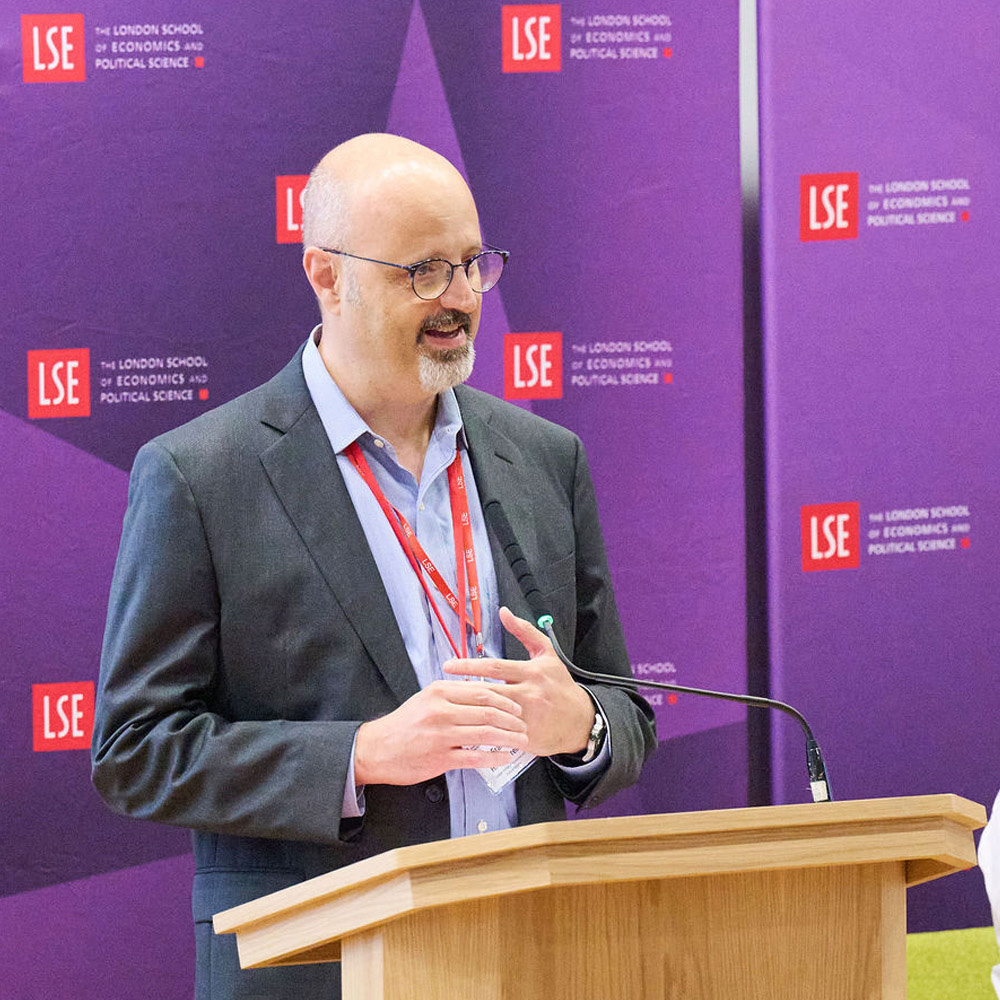The International Inequalities Institute at 10
A new direction in inequality research
Today’s world is one of extreme inequality. In the UK alone, the top 10% own 57% of the wealth. Across the world, such inequality isn’t just unfair, it is also detrimental to the health, safety and prosperity of nations.
LSE is dedicated to tackling inequality by training future leaders, engaging in research, shaping policy, and convening the global conversation. Key to our work on inequality is our International Inequalities Institute (III).
Founded in 2015, the III recognises that inequality has many faces – not just economic, but also social, political, and cultural – and works on projects that stretch across disciplines and national boundaries. The Institute’s research covers important topics, including gender justice, intergenerational inequality, perceptions of inequality, quality of employment, class, elites, and tax justice.
Much of the III’s work has been made possible thanks to philanthropic support, including a transformational gift from Chuck Feeney’s Atlantic Philanthropies. This launched the Atlantic Fellows for Social and Economic Equity programme and endowed the Amartya Sen Chair in Inequality Studies, currently held by the Institute’s Director Professor Francisco H. G. Ferreira
The III has established itself as one of the leading academic institutes in the world and some of the III’s successes over the last ten years include:
- Changing the narrative on wealth inequality
The institute collaborated with the Joseph Rowntree Foundation to run focus groups on the understanding of inequality among the general public. -
Simulating tax policies
The Institute joined the SOUTHMOD project to strengthen policymaking capacity across Latin America and Sub-Saharan Africa by training government officials in using tax-benefit microsimulation models.
- Examining Latin American Inequality
The III played a central role in the success of the Latin America and Caribbean Inequalities Review (LACIR) programme, coordinating a four-year collaboration that culminated in a landmark Supplement in Oxford Open Economics. - Ending the non-domiciled tax regime
Furthermore, the Institute’s research was key to the UK government’s decision to phase out the non-domiciled (non-dom) tax regime. III research on non-doms was discussed in parliament and featured extensively in the media discussion of the
issue. - Global Estimates of Opportunity and Mobility Database
The Global Estimates of Opportunity and Mobility (GEOM) database offers the most comprehensive set of estimates on Inequality of Opportunity available worldwide. To date, GEOM contains estimates for 72 countries, accounting for 67% of the world’s population and covering a time span as wide as 40 years in some cases. Recently, the OECD used some methodology from the GEOM project for analysis in its new report To Have and Have Not – How to Bridge the Gap in Opportunities.
To celebrate 10 years of impact, the Institute recently held a two-day conference, The III at 10: New Directions in Inequality Research. This conference featured two keynote lectures, 72 research presentations, a poster session and an evening panel discussion. The main conference had over 100 attendees, while over 800 members of the public joined the keynote lectures with Leslie McCall and alumnus Thomas Piketty online and in-person.
The programme featured 24 thematic sessions including work on elites and tax justice, intergenerational mobility, the dimensions of race, gender, and caste, and advancements in measurement and methods in inequality research.
In bringing together researchers from a variety of disciplines and cultural contexts, the conference highlighted the importance of collaboration and meaningful, sustained engagement to better identify effective strategies to reduce inequality.

It is enough to read the news these days to know that work on understanding and fighting inequalities is more important and urgent than ever. As we look ahead to the next ten years, we hope to shed more light both on how unfair structures create low-opportunity traps at the bottom of the distribution and at how extreme wealth leads to capture of the State and of the political process at the top, sometimes through authoritarian populism.
Discover more research with the International Inequalities Institute's blog, LSE Inequalities.
